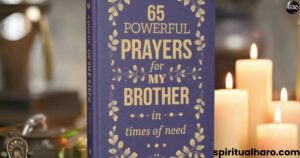The Bible is a treasure trove of fascinating stories, but some verses stand out as downright bizarre .These bizarre Bible verses will leave you scratching your head and eager to learn more.
They challenge our ideas about faith and morality, often in the most unexpected ways. As you dive into these bizarre Bible verses, you’ll stumble upon strange tales and unusual teachings that ignite curiosity and spark deep questions.
From quirky laws to enigmatic prophecies, these verses reveal a side of scripture that many people miss. They remind us that the Bible isn’t just a rulebook; it’s a complex narrative bursting with surprises.
Exploring these bizarre Bible verses not only deepens your understanding of the text but also invites you to ponder their relevance in our lives today.
Whether you’re a lifelong believer or a curious skeptic, these bizarre Bible verses promise intriguing discoveries for everyone.
Weird Bible Verses in the Old Testament
The Old Testament contains some crazy bible verses that often leave readers amazed. For instance, the story of Balaam’s talking donkey is a standout. These weirdest bible verses reveal strange events that challenge our understanding of reality.
Ezekiel 4:12-15
God instructed Ezekiel to bake bread using human excrement as fuel. When Ezekiel protests, God allows him to use cow dung instead. This bizarre command symbolizes the dire circumstances Israel will face during the siege.
Judges 3:21-22
Ehud, a judge of Israel, thrusts a dagger into the belly of King Eglon, killing him. The detail of Eglon’s fat closing around the blade adds to the shock of this violent act. This moment underscores God’s use of unexpected heroes to deliver His people.
2 Kings 2:23-24
Elisha is mocked by a group of boys who call him “baldy.” In response, he curses them in the name of the Lord, and two bears come out to maul them. This strange incident highlights the seriousness of respecting God’s prophets.
Genesis 38:8-10
Judah tells his son Onan to marry Tamar, his deceased brother’s wife. Onan spilled his seed on the ground to avoid producing offspring. This shocking act leads to God striking him dead, showing the gravity of familial duty in biblical times.
1 Samuel 6:19
After the Philistines return the Ark of the Covenant, some men look inside and are struck down by God. This bizarre event serves as a powerful reminder of the holiness of God and the consequences of disrespecting sacred objects.
2 Kings 6:28-29
During a severe famine, a woman tells the king she has eaten her own child. This horrific scenario reflects the desperation and dire circumstances faced by the people. It illustrates the extreme measures taken in times of suffering.
Job 2:7-8
After losing everything, Job sits among ashes and scrapes his sores with broken pottery. This striking image of suffering shows Job’s despair. His actions reflect the depth of his grief and the test of his faith.
Exodus 4:24-26
On the way to Egypt, God seeks to kill Moses because he has not circumcised his son. Zipporah, Moses’ wife, circumcises their son to save him. This unusual situation underscores the importance of obeying God’s commands.
Jeremiah 19:1-2, 9
God commands Jeremiah to buy a potter’s jar and break it before the people. This act symbolizes the impending destruction of Jerusalem. The bizarre visual serves as a warning of God’s judgment on His people.
Hosea 1:2-3
God tells Hosea to marry Gomer, a woman of unfaithfulness. This striking command illustrates the relationship between God and Israel, emphasizing their infidelity. It highlights the depth of God’s love and the challenges faced by His prophets.
Judges 3:21-22
Ehud, a judge of Israel, approaches King Eglon with a hidden dagger. He tells Eglon he has a secret message, and as he draws near, he plunges the blade into the king’s belly. The fat closes around the blade, preventing it from being removed. This shocking act of assassination emphasizes the unexpected ways God delivers His people from oppression.
2 Kings 6:24-25
During a severe famine, the city of Samaria is under siege. The people are desperate, resorting to eating anything they can find. One woman tells the king she has agreed to eat her son with another woman. This horrifying situation illustrates the extreme despair and desperation faced during times of crisis, revealing the depths to which people can sink in dire circumstances.
Related Guide:
Spiritual Meaning of Seeing 2 Crows: A Comprehensive Guide
Weird Bible Verses in the New Testament

The New Testament isn’t short on bizarre Bible verses either. One example is when Jesus curses a fig tree for not bearing fruit. Such events prompt us to question deeper meanings behind these unusual stories.
Mark 5:1-13
In this passage, “Jesus encounters a man possessed by a legion of demons in the region of Gerasenes.” The demons beg Him not to send them away but instead to let them enter a herd of pigs. “Jesus agrees, and the pigs rush down a steep bank into the sea.” This strange event highlights Jesus’ authority over evil spirits and the dramatic consequences of His actions.
Mark 14:51-52
“During Jesus’ arrest, a young man follows Him wearing only a linen cloth.” When the guards try to seize him, “he leaves the cloth behind and flees naked.” This unusual incident emphasizes the fear and chaos surrounding Jesus’ capture and serves as a curious detail in the narrative.
1 Corinthians 11:14-15
Paul writes, “If a man has long hair, it is a disgrace to him, but a woman’s long hair is her glory.” This peculiar cultural commentary raises questions about gender norms and societal expectations. “It reveals the early church’s struggle with issues of identity and propriety.”
Matthew 19:12
In this verse, “Jesus speaks about eunuchs, noting that some are born that way, others are made by men, and some choose to live like this for the kingdom of heaven.” This bizarre teaching challenges traditional views on marriage and sexuality, encouraging a deeper understanding of commitment to God.
John 2:13-16
“In this passage, Jesus drives out the money changers from the temple with a whip, declaring that they have turned His Father’s house into a market.” This dramatic action showcases Jesus’ passion for holiness and His role as a reformer within the Jewish faith.
Matthew 8:28-34
“Jesus meets two demon-possessed men in the region of the Gadarenes.” The demons plead with Him not to torment them and request to enter a herd of pigs instead. “When He allows it, the pigs rush into the sea.” This strange encounter illustrates the clash between good and evil and the power of Jesus over darkness.
Acts 5:1-11
“Ananias and Sapphira sell a piece of property but secretly keep part of the money for themselves while claiming to donate the entire amount.” They both fall dead after lying to the apostles. “This shocking event serves as a stern warning about honesty and integrity within the early church.”
Luke 14:26
“Jesus declares that anyone who does not hate their family and even their own life cannot be His disciple.” This shocking statement challenges conventional understanding of love and loyalty, emphasizing the radical commitment required to follow Him.
Matthew 15:21-28
“A Canaanite woman begs Jesus to heal her demon-possessed daughter.” Initially, Jesus ignores her, and when He responds, He uses a metaphor about not giving children’s bread to dogs. “Her clever reply impresses Him, leading to her daughter’s healing.” This encounter illustrates the tension between cultural boundaries and faith.
Mark 16:17-18
“Jesus promises that believers will perform signs, including casting out demons and speaking in new tongues.” He adds that they will handle snakes and drink poison without harm. “This unusual promise raises questions about faith and the supernatural power granted to believers.”
1 Corinthians 14:34-35
“Paul instructs women to remain silent in churches and asks them to ask their husbands at home if they have questions.” This controversial directive highlights cultural norms of the time and the ongoing debate about women’s roles in the early church.
1 Corinthians 7:1-2, 8-9
“Paul discusses marriage and singleness, suggesting that it is good for a man not to touch a woman.” He then advises the unmarried and widows to remain single but acknowledges that “it is better to marry than to burn with passion.” This odd juxtaposition reflects the complexities of relationships and spiritual devotion.
Weird Bible Verses in Leviticus
Leviticus features several bizarre Bible verses that outline odd laws and rituals. From dietary restrictions to funny bible verses and purity laws, these verses can seem strange today. However, they reflect the unique cultural context of ancient Israel.
Leviticus 15:19-24
This passage discusses a woman’s monthly cycle, stating, “If a woman has a discharge of blood for many days, she is considered unclean.” Anything she touches during this time also becomes unclean. “This detailed regulation emphasizes the importance of purity in ancient Israelite society and raises questions about how such rules apply today.”
Leviticus 19:19
“Do not plant your field with two kinds of seeds or wear clothing made of two kinds of material.” This strange directive combines agricultural and textile rules, reflecting the broader theme of holiness in daily life. “It invites us to consider the significance of purity and separation in our choices.”
Leviticus 19:27
“You must not cut the hair at the sides of your head or clip off the edges of your beard.” This peculiar verse establishes guidelines for personal grooming. “It illustrates the importance of identity and distinction in the Israelite community, making us ponder the cultural implications of such practices.”
Leviticus 11:9-12
In this passage, “God outlines which sea creatures are permissible to eat, stating that only those with fins and scales are clean.” All others are deemed unclean and should not be consumed. “This bizarre dietary law highlights the significance of cleanliness and holiness in worship and daily life.”
Leviticus 12:1-5
“When a woman gives birth, she is considered unclean for a period of time.” After giving birth to a son, she remains unclean for seven days; after having a daughter, it is twice as long. “This unusual regulation points to the cultural and spiritual practices surrounding childbirth in ancient Israel.”
Leviticus 19:26-28
“You must not eat any meat with the blood still in it or practice divination or sorcery.” This verse also states, “Do not cut your bodies for the dead or tattoo yourselves.” These bizarre prohibitions reflect concerns about pagan practices and emphasize the call to holiness among God’s people.
Leviticus 21:16-23
“God instructs Moses to tell Aaron that no one with a physical defect can approach to offer food to the Lord.” This verse specifies various defects, raising questions about physical appearances and access to worship. “It challenges our understanding of worthiness and God’s acceptance.”
Leviticus 15:16-18
“When a man has an emission of semen, he becomes unclean until evening.” This verse outlines the ritual purity required after sexual activity. “It highlights the strict standards of cleanliness that governed personal and communal life in ancient Israel.”
Leviticus 20:18
“If a man has sexual relations with a woman during her monthly period, both of them must be cut off from their people.” This shocking command emphasizes the seriousness of sexual purity and its implications for community identity. “It raises important discussions about morality and ancient cultural norms.”
Leviticus 26:27-29
“If you do not listen to Me and follow My commands, I will become hostile toward you.” The passage describes severe consequences, including being so hungry that “you will eat the flesh of your sons and daughters.” This bizarre warning serves as a stark reminder of the covenant’s seriousness and the consequences of disobedience.
Shocking Bible Verses About Morality

Some bizarre Bible verses confront our moral compass directly. For example, strange bible verses seem to endorse extreme actions or harsh punishments. These shocking statements force us to grapple with the complexities of biblical morality.
Deuteronomy 21:18-21
“If someone has a stubborn and rebellious son who does not obey his parents, he shall be brought to the elders of the city.” This verse commands that such a son be stoned to death. “This harsh punishment reveals the severity of ancient laws regarding family and community order.”
Exodus 21:20-21
“If a man beats his male or female slave with a rod and the slave dies, he must be punished.” However, if the slave survives a day or two, he is not to be punished because “the slave is his property.” “This shocking allowance for violence against slaves raises difficult questions about morality and human rights.”
Matthew 10:34-36
“Do not suppose that I have come to bring peace to the earth. I did not come to bring peace, but a sword.” This verse suggests that following Jesus may create divisions even within families. “It challenges our understanding of peace and loyalty in faith.”
Judges 19:22-29
In this grim passage, “a Levite’s concubine is brutally abused by a mob, leading to her death.” The Levite then dismembers her body and sends the parts to the tribes of Israel. “This shocking narrative raises issues about violence, gender, and societal morality in ancient Israel.”
Exodus 32:26-28
“When Moses sees the idolatry of the Israelites, he stands at the entrance of the camp and calls for those who are on the Lord’s side.” The Levites respond, and Moses commands them to kill those who worshiped the golden calf, resulting in about three thousand deaths. “This shocking act emphasizes the seriousness of fidelity to God.”
Hosea 1:2-3
“God commands Hosea to marry a promiscuous woman, symbolizing Israel’s unfaithfulness to Him.” Hosea’s marriage to Gomer reflects the tumultuous relationship between God and His people. “This shocking command illustrates the theme of redemption despite moral failure.”
2 Samuel 13:1-19
The tragic story of Amnon and Tamar reveals deep moral failings within a royal family. Amnon rapes his half-sister Tamar, leading to her desolation. “This heartbreaking account raises difficult discussions about power, consent, and the consequences of immoral actions.”
Genesis 19:30-38
After the destruction of Sodom and Gomorrah, “Lot’s daughters, believing they are the last survivors, intoxicate their father to have children.” This shocking act illustrates desperation and moral decline in the aftermath of catastrophe. “It challenges our perceptions of morality under extreme circumstances.”
Numbers 25:6-9
“Israelite men began to engage in sexual immorality with Moabite women, leading to idolatry and divine judgment.” Phinehas, in a zealous act, kills an Israelite man and a Midianite woman, stopping a plague that claimed many lives. “This shocking response underscores the consequences of moral compromise.”
Deuteronomy 25:11-12
“If two men are fighting and the wife of one intervenes to rescue her husband by grabbing the other man’s genitals, you must cut off her hand.” This bizarre law raises questions about the treatment of women and the harshness of ancient legal systems. “It highlights the complex morality surrounding honor and violence.”
Weird Bible Verses About Prophecy
Prophetic bizarre Bible verses often contain vivid and strange imagery. They describe events that can feel surreal or difficult to interpret. These verses invite readers to explore the mysteries of faith and the future.
Ezekiel 4:4-6
“God commands Ezekiel to lie on his side for 390 days, symbolizing the years of Israel’s sin.” Then he must switch sides and lie for another 40 days for Judah. “This bizarre act serves as a dramatic prophecy of judgment against the nations.”
Isaiah 20:2-4
“Instructed by God, Isaiah walks around naked and barefoot for three years.” This unusual sign signifies how Egypt and Cush will be taken captive by the Assyrians. “It reveals the lengths to which prophets went to deliver God’s message, challenging our views on modesty and dignity.”
Jeremiah 27:2-3
“Jeremiah makes a yoke of straps and bars, wearing it to symbolize that the nations must serve Babylon.” He sends this message to the kings of Edom, Moab, and others. “This strange object lesson illustrates the inevitability of Babylonian rule.”
Ezekiel 5:1-4
“God commands Ezekiel to shave his head and beard, using the hair to demonstrate the fate of Jerusalem.” He divides it into three parts: fire, the sword, and scattering. “This bizarre prophecy graphically illustrates the destruction awaiting the city.”
Jeremiah 13:1-7
“God tells Jeremiah to buy a linen belt and wear it without washing it.” Later, God instructs him to hide it in a crevice by the Euphrates River, only to find it ruined later. “This peculiar act symbolizes the fate of Judah, showing their pride and corruption.”
Ezekiel 24:15-18
“God tells Ezekiel that his wife will die, and he is not to mourn her.” This strange command illustrates the emotional distance God feels towards a rebellious Israel. “It shows how prophecy can intertwine personal grief with national consequences.”
Jeremiah 28:10-11
“Prophet Hananiah breaks Jeremiah’s yoke to proclaim that Babylon will fall in two years.” This dramatic gesture contradicts Jeremiah’s message, showcasing the conflict between true and false prophets. “It highlights the tension in prophetic messages and their societal impacts.”
Ezekiel 37:1-10
“The famous vision of the dry bones comes to Ezekiel, where he is told to prophesy over them.” As he speaks, the bones come together and are covered with flesh, becoming a vast army. “This weird vision symbolizes the restoration of Israel, blending the bizarre with profound hope.”
Isaiah 20:2-4
“In another instance of prophetic action, Isaiah walks naked as a sign of shame for Egypt and Cush.” This behavior reflects the fate that awaits these nations at the hands of their conquerors. “It reinforces the unconventional methods used by prophets to convey urgent messages.”
Jeremiah 32:6-15
“God tells Jeremiah to buy a field in Anathoth while in prison.” This unusual command comes as a sign of hope, indicating that Israel will return to their land. “It emphasizes faith in God’s promise despite dire circumstances.”
Bizarre Bible Verses That Challenge Beliefs

Some bizarre Bible verses challenge long-held beliefs and spark debate. They can lead to intense discussions about faith, interpretation, and doctrine. Engaging with these verses encourages us to think critically about our own beliefs.
John 6:53-58
“In this passage, Jesus declares, ‘Unless you eat the flesh of the Son of Man and drink his blood, you have no life in you.'” This shocking statement led many to question His teachings. “It challenges traditional beliefs about communion and the nature of spiritual nourishment.”
Matthew 5:29-30
“Here, Jesus says that if your right eye causes you to sin, gouge it out, and if your right hand causes you to stumble, cut it off.” Such extreme language raises eyebrows and forces readers to consider the seriousness of sin. “It challenges the belief in self-preservation versus moral integrity.”
Genesis 19:30-38
“This passage tells the unsettling story of Lot’s daughters who, believing they are the last people on earth, get their father drunk to conceive children.” This bizarre act raises uncomfortable questions about morality and desperation. “It challenges our views on familial relationships and ethics.”
Exodus 4:24-26
“In a startling encounter, God seeks to kill Moses because his son was not circumcised.” Zipporah, Moses’ wife, quickly circumcises their son to save him. “This shocking moment confronts beliefs about covenant, obedience, and divine wrath.”
Genesis 38:8-10
“This passage describes Judah instructing his son Onan to marry his deceased brother’s wife and produce offspring.” However, Onan disobeys and spills his seed on the ground, leading to his death. “This bizarre story challenges beliefs about duty, sexuality, and divine judgment.”
Numbers 5:11-31
“This section details a ritual for a woman accused of adultery, where a priest makes her drink bitter water that can cause a curse if she is guilty.” The implications of this bizarre test raise questions about justice and gender roles. “It challenges beliefs about the treatment of women in ancient law.”
Deuteronomy 23:1
“The verse states that ‘No one who has been emasculated by crushing or cutting may enter the assembly of the Lord.'” This exclusionary rule seems harsh and bizarre, challenging beliefs about physical condition and acceptance in religious communities.
Judges 11:30-40
“In a desperate vow, Jephthah promises to sacrifice whatever comes out of his house if he wins the battle.” Tragically, his daughter is the first to greet him. “This horrifying outcome challenges beliefs about vows, sacrifice, and the consequences of rash promises.”
John 6:53-57
“Repeating a similar message, Jesus emphasizes the necessity of eating His flesh and drinking His blood for eternal life.” This reiteration pushes the boundaries of comprehension and belief about salvation. “It challenges followers to think deeply about the nature of faith and communion.”
Bizarre Bible Verses About Divine Intervention
Explore the surprising ways God intervenes in human affairs. These bizarre Bible verses showcase miraculous events and unexpected outcomes. Witness the profound impact of divine actions on our lives.
Ezekiel 4:4-6
“In this verse, God instructed Ezekiel to lie on his side for 390 days as a sign against Israel.” This unusual command serves as a dramatic act of prophecy. “It challenges our understanding of divine messages and their presentation.”
Isaiah 20:2-4
“God tells Isaiah to walk around naked and barefoot for three years as a sign against Egypt and Cush.” This shocking act raises eyebrows and sparks questions about prophetic symbolism. “It challenges our beliefs about the lengths to which God might go to convey a message.”
Jeremiah 27:2-3
“Jeremiah wears a yoke around his neck to symbolize the coming Babylonian captivity.” This bizarre act serves as a visual warning to the people. “It challenges our notions of how God communicates serious truths through unusual methods.”
Ezekiel 5:1-4
“In this passage, Ezekiel is commanded to shave his head and beard and divide the hair into three parts.” This bizarre ritual represents the coming destruction of Jerusalem. “It challenges our perceptions of divine warning and its manifestations.”
Jeremiah 13:1-7
“God commands Jeremiah to buy a linen belt and hide it in a rock, later instructing him to retrieve it when ruined.” This peculiar metaphor illustrates the people of Judah’s pride and decay. “It challenges how we interpret God’s messages and the symbolism involved.”
Ezekiel 24:15-18
“God tells Ezekiel that his wife will die, and he must not mourn her.” This bizarre instruction emphasizes the severity of the impending siege of Jerusalem. “It challenges our understanding of grief and divine purpose.”
Jeremiah 28:10-11
“In this passage, the prophet Hananiah breaks Jeremiah’s yoke as a symbol of false hope for Israel.” The dramatic action highlights the consequences of ignoring God’s true message. “It challenges beliefs about false prophets and the nature of prophecy.”
Ezekiel 37:1-10
“God brings Ezekiel to a valley of dry bones and commands him to prophesy to them.” This bizarre vision of restoration challenges readers’ beliefs about death and revival. “It reveals the power of God to bring life where there seems to be none.”
Isaiah 20:2-4
“Again, Isaiah’s nakedness serves as a powerful metaphor for the shame of Egypt.” Such actions provoke thought about the roles prophets play in conveying divine truth. “It challenges our beliefs about societal norms and prophetic actions.”
Bizarre Bible Verses About Unusual Sacrifices

Delve into the strange and often shocking sacrifices in the Bible. These bizarre Bible verses challenge our understanding of what it means to give. Learn how these unusual acts reveal deeper spiritual truths.
Genesis 22:2
“God commands Abraham to sacrifice his son Isaac on Mount Moriah.” This shocking request tests Abraham’s faith in a profound way. “It raises questions about obedience and the nature of sacrifice.”
Leviticus 16:8-10
“On the Day of Atonement, two goats are selected: one for the Lord and one as a scapegoat.” The bizarre practice of sending the scapegoat into the wilderness symbolizes the removal of sin. “It challenges our understanding of atonement and guilt.”
Judges 11:30-31
“Jephthah makes a vow to sacrifice whatever comes out of his house if he wins the battle.” His tragic fulfillment of this vow leads to heart-wrenching consequences. “It challenges beliefs about the seriousness of vows and the nature of divine intervention.”
Ezekiel 39:17-20
“Ezekiel describes a great feast for the birds after God defeats Israel’s enemies.” This bizarre imagery of divine judgment emphasizes the extent of God’s power. “It challenges perceptions of victory and defeat in biblical contexts.”
2 Samuel 24:24
“David insists on paying for the threshing floor where he intends to build an altar.” His refusal to offer something that costs him nothing emphasizes the importance of true sacrifice. “It challenges our ideas about generosity and giving.”
Exodus 12:21-23
“Moses instructs the Israelites to sacrifice a lamb and mark their doorposts with its blood.” This bizarre act signifies protection during the Passover. “It challenges our understanding of salvation and divine protection.”
Matthew 26:6-13
“A woman anoints Jesus with expensive perfume, prompting outrage among the disciples.” This unusual act of devotion raises questions about the value of worship. “It challenges societal norms about wealth and generosity.”
1 Kings 18:26-29
“Elijah confronts the prophets of Baal, who sacrifice a bull on an altar.” Their bizarre rituals highlight the futility of idol worship. “It challenges beliefs about true worship and the power of the one true God.”
Hosea 6:6
“God desires mercy, not sacrifice.” This powerful statement emphasizes that genuine love and compassion are more valuable than rituals. “It challenges traditional views on religious practices and their importance.”
FAQ’S
What makes a Bible verse weird or strange?
Bizarre Bible verses often contain unusual stories or surprising messages. These verses can challenge our understanding of faith and morality.
Can weird Bible verses teach us anything?
Absolutely!.Bizarre Bible verses can offer unique lessons and provoke thought. They invite us to explore deeper meanings and reflect on our beliefs.
What is the significance of seemingly violent Bible verses?
Bizarre Bible verses that depict violence may reveal the complexities of human nature. They challenge us to think about justice, morality, and divine intent.
How should we interpret bizarre dietary restrictions in the Bible?
Bizarre Bible verses about dietary laws often reflect cultural and historical contexts. They prompt us to consider the meaning behind these restrictions in today’s world.
What is the most unusual Bible verse?
Many consider certain bizarre Bible verses, like those about talking animals or strange rituals, to be the most unusual. These verses stand out and make us curious about their meanings.
Conclusion
Bizarre Bible verses reveal a fascinating side of scripture. These verses often leave us puzzled, yet they spark curiosity and deeper reflection. By exploring these bizarre Bible verses, we can gain insights into the complexities of faith and human experience.These strange and unusual passages challenge our beliefs and encourage us to think critically.
They remind us that the Bible is not just a collection of rules, but a rich tapestry of stories and lessons. Whether you are a believer or just curious, bizarre Bible verses have something valuable to offer. As we dive into these intriguing texts, we discover new meanings and connections that can enrich our understanding of life and spirituality. Embracing these bizarre Bible verses can lead us on a journey of exploration and discovery.

With five years of experience as a content writer, I specialize in creating engaging website content that drives traffic and builds brand loyalty. My expertise lies in crafting clear, compelling narratives that connect with audiences and optimize for search engines. I’m passionate about helping businesses articulate their unique value through well-researched blog posts, persuasive web copy, and impactful social media content. My goal is to transform ideas into captivating stories that not only inform but also inspire action.







